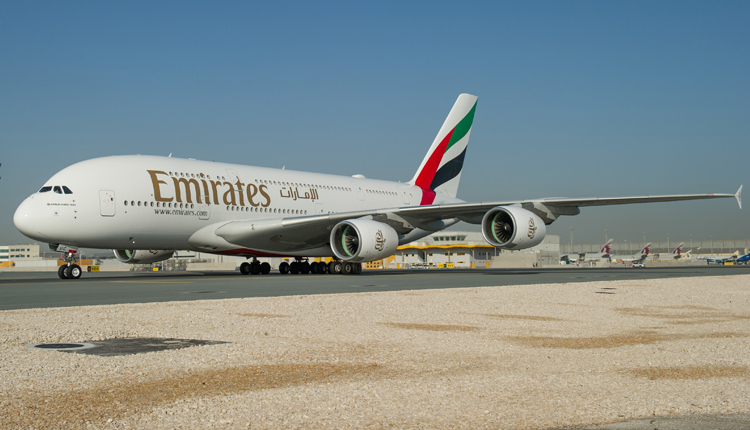Emirates has ordered 50 Airbus A350 jets, the Dubai state-owned airline revealed during the Dubai Air Show on Monday.
The order’s list price sits at $16 billion, but a steep discount is typically negotiated by airlines. The deal was originally slated to see Emirates order 70 planes from the French manufacturer — 40 of the A350s and 30 A330-900neo jets — but all A330 orders were scrapped in favoru of bringing the A350 order size to 50.
Airbus chief executive Guillaume Faury told a press conference that the European multinational planemaker’s flagship A380 would now have a “younger but very talented brother in the Emirates family.”
The A350 is a family of long-range, twin-engine wide-body jet airliners, while the A380 is the world’s largest passenger airliner. The 50 jets ordered by Emirates are its cornerstone A350-900 variety, accommodating between 300 and 350 passengers.
“Complementing our A380s and 777s, the A350s will give us added operational flexibility in terms of capacity, range and deployment,” Emirates Chairman and Chief Executive Sheikh Ahmed bin Saeed Al Maktoum told press. “In effect, we are strengthening our business model to provide efficient and comfortable air transport services to, and through, our Dubai hub.”
The announcement of the order comes after an underwhelming first day for the Middle East’s flagship aerospace expo, with only two jets sold on Sunday.
The Emirates chief executive declined to discuss the reasons behind the company’s A330 order cancellation. He only said “For anybody touching on the A330, that is not part of the discussion today.”
The A330-900 is a slightly thinner variant of the A350-900, carrying less passengers and with a slightly slower cruising speed. The A350 is more expensive but lighter, meaning less fuel costs and more savings over time, aviation analysts say.
Emirates is the number one buyer of Airbus’ iconic A380, the world’s largest airliner, but its cutback on orders of the jumbo jet early this year made the French manufacturer announce it would scrap its production. Aviation analysts called it the “end of an era,” as the industry’s symbol of excess and luxury flight was sidelined for smaller, more fuel-efficient planes now increasingly preferred by airliners.
Asked if a reversal of the decision was possible and the jet’s production might be continued, Faury replied, “The decision is in implementation now, we love the A380 at Airbus, it is a great plane and will continue to fly for decades, we are committed to supporting it. But no, the decision that was taken to cease production is not reversed.”
The last A380 will be delivered in 2021.
Airbus’ chief corporate officer, Christian Scherer told CNBC on Sunday that the A380 was by no means finished, however, as the company turns to the secondhand market to keep the jet in use. Scherer described the A380 as having “many, many profitable years” to come.
The Dubai Air Show, known for record-breaking mega deals, is likely to see fierce competition for deals from rivals Airbus and Boeing, who each own approximately half of the market for large commercial airliners. But the American planemaker’s presence has been subdued thus far, weighed down by Boeing’s two catastrophic 737 Max jet crashes in a span of five months, which killed a combined 346 people.
Boeing’s fleet of some 400 737 Max jets has been grounded since March, denting airlines’ profits, forcing carriers to cancel thousands of flights and pushing up costs. On the air show’s first day, the manufacturer announced a sale of two of its 787-9 Dreamliner jets to Biman Bangladesh Airlines, valued at $585 million at list prices.
Asked on Sunday if the 737 Max’s grounding benefited Airbus, Scherer forcefully rejected the notion, telling CNBC: “This does not benefit anyone in this industry, the least of which would be Airbus… it is not good for competitors to see problems on any one particular airplane type.”
At the start of the last Dubai Airshow in 2017, Boeing kicked off the event by clinching a major sale of 40 787-10 jets to Emirates Airline at a value of $15.1 billion.
Source: CNBC


